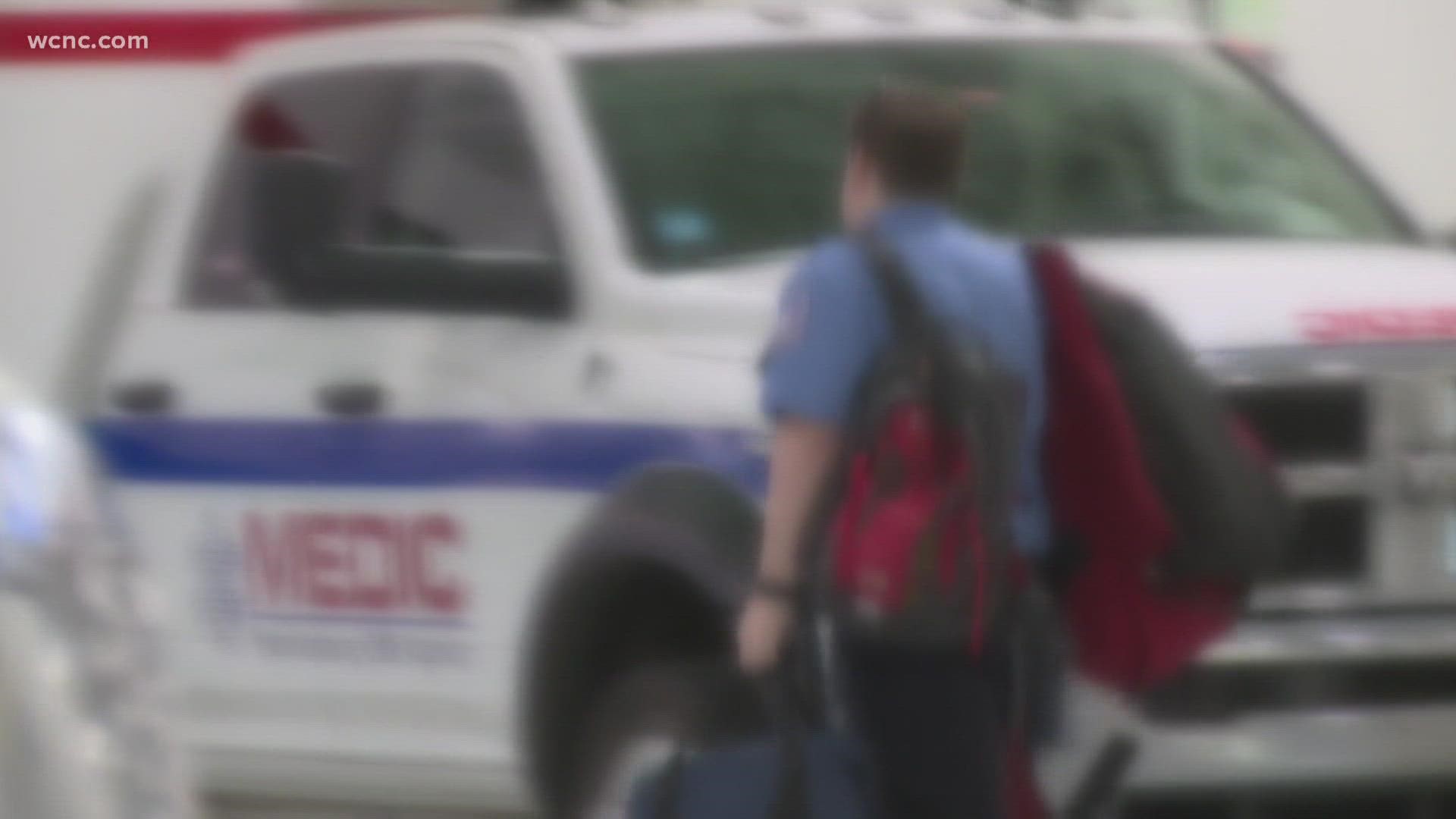CHARLOTTE, N.C. — Nearly two months after Medic got help from the Federal Emergency Management Agency during the surge of COVID-19's omicron variant, the strike team sent by FEMA has now rolled out of Mecklenburg County.
The FEMA strike team consisting of eight extra ambulances and 16 staff members arrived on Jan. 5. They originally were set to stay in town for about two weeks but ended up staying to help past the one-month mark. The team will depart from the county on Wednesday.
“With FEMA leaving it means each individual that works at MEDIC is going to work a little bit harder in March and April as we continue to increase our staffing," Jon Studnek, Deputy Director for MEDIC, said.
The added support came when Medic said they were averaging more than 40 calls per day tied to the coronavirus. Now, they're only responding to two or three COVID calls a day.
Overall, virus cases and emergencies have been on the decline across Mecklenburg County. Medic told WCNC Charlotte in January they still had plenty of employment openings within their own ranks, and several members of their own team at the time were out with COVID-19.
This is the first time in about eight months where MEDIC isn't forced to require paramedics to work overtime. The agency is hiring monthly but there are still about 70 paramedic and EMT positions open, the largest staffing shortage they've ever had.
“Over the course of the pandemic, we had a loss of employees and then a difficulty hiring because of a lack of a pipeline, folks not interested in joining EMS. So, the hole we’re in is just going to take time to dig out of," Studnek said.
MEDIC has requested funding from Mecklenburg County to help with retention and recruitment. They need more workers to help them recover from the impacts of COVID-19.
"Chaos and crisis can occur but the most important thing you do on any day is you hold the hand of an individual who’s scared and help them navigate that situation," Studnek said.
They are still prioritizing calls to ensure they can reach the sickest people quickest. Anyone calling with a non-life-threatening emergency may have to answer a few extra questions on the phone or wait a bit longer for an ambulance.
They are still offering a rideshare program to get low acuity patients to the hospital.
Contact Chloe Leshner at cleshner@wcnc.com and follow her on Facebook, Twitter and Instagram.

